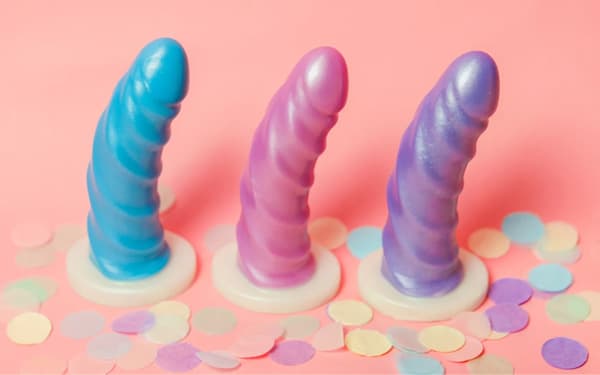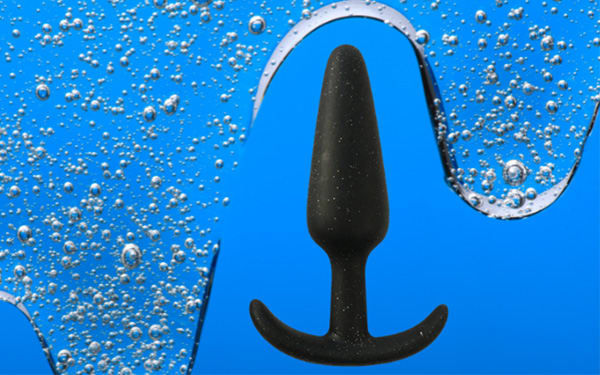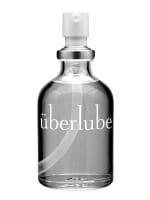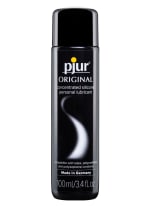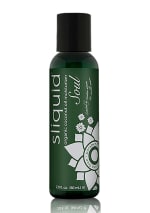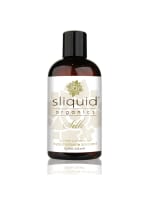Best Lube for Anal Sex: What to Look for And What to Avoid
Understanding the Need for Lube in Anal Sex
We sing the praises of lube all the time, but never is it more crucial for safety and pleasure than when it’s used for anal penetration. Anal play that doesn’t involve insertion can be made more sexy with lube too, but it isn’t as necessary as when you want to use a finger, an anal-safe toy, or a penis to slide inside. The anus doesn’t generate its own lubricant, and the tissues are easily damaged without it—so let’s look at lube options so you can choose the best anal lube for you.
Safety Considerations
The tissues of the anus are thinner and more absorbent than those of the vagina, and the anus earns its reputation for tightness because it is held closed by two sets of sphincters. One of those is relatively easy for you to relax when you want to—but the other one, controlled by the autonomic nervous system, isn’t under your conscious control. Not only does any person experiencing anal penetration need to truly relax, they need lubricant to help navigate that tight sphincter and ensure that penetration isn’t painful and damaging to the tissues.
Enhancing Pleasure
It’s not just good for helping minimize and avoid pain or damage—lube is great for adding to the pleasure of anal sex. It can actually enhance almost any kind of sex! Lubricant helps you avoid too much friction, which can lessen the pleasures of sex. It is particularly enhancing for play that includes penetration and stroking. If you like it hard and fast, lube is your friend! If you like it slow and sensual, lube helps you reach sweet and slippery heights of pleasure.
Types of Lubricants
Lubricants are made of different kinds of slippery materials—they are all somewhat different from each other and may be best to use in varying contexts. Not all users will love the same lubes, so you might want to get a few small bottles to try different kinds.
Best Water-based Lubes
Water-based lubricants can be used with any kind of toy material, as well as latex barriers. Latex is especially important for anal play, since barriers help to prevent many STIs, including HIV as well as HPV, the virus that causes warts. Water-based lubes wash off easily; over time they can sometimes get a bit sticky as the water evaporates, but they can easily be rehydrated with a few drops of H2O. For anal play, thicker gel-type lubes may feel cushier and be less likely to “squeegee” off the toy or penis being used for insertion.
Best-Selling Silicone-based Lubes
Silicone lubes are fantastically slippery and last a long time. Be careful not to drop a bottle in the shower—this lube is so slick that it’s a hazard spilled on the floor! The other common caution: Take care using silicone lube with silicone toys. We usually recommend against this combo altogether because in some cases, the lube can permanently damage the toy. When playing with silicone gear, use water- or oil-based lubes. Silicone lube IS fine to use with latex.
Top-Rated Oil-based Lubes
Oil-based lubes can be made of plant-based oils like coconut or almond, or mineral oil and other petroleum-based products. We recommend the plant-based versions; petroleum products can be hard on the skin, and we are not comfortable recommending them for use on mucosa. Additionally, NO oil-based lubes should be used with latex! But if you are not using latex barriers and are not sensitive to the oils in question, oil-based lubricants can last a long time and are usually quite slippery.
Favorite Hybrid Lubes
Hybrid lubes often have a creamy consistency. They are a mix of a silicone in a water-based formula and they have devoted fans who appreciate their texture as well as the way the hybrid styles last compared to strictly water-based lubes.
Factors to Consider When Choosing a Lube for Anal Sex
There is no single best lubricant for everyone because users may have different needs, preferences, and sensitivities. The only absolute principle will be “Any lube is probably better than no lube at all.” You may find you want to use the same lube for all kinds of play, or you may choose various types for different activities. Here are some elements to consider when you’re exploring which lube will be best for your anal adventures.
Ingredients
There are a couple of ways to consider the ingredients found in lube: You may want to seek out certain things; and you might want to avoid others.
Some lube ingredients some customers seek out:
- Botanicals are plant-based ingredients, often organic, that appeal to some customers for their scent; because they signal that the lube may contain fewer chemicals; or for qualities these plants might bring to the way the lube works.
- Aloe vera is a botanical known for it's soothing properties, and is also extremely slick, which can make for a longer lasting lube.
- A particular botanical ingredient that some want to explore is CBD, a non-psychoactive element of cannabis plants. When used in lubricant CBD does not affect your mental state, but some find it can enhance relaxation and pain relief, so its relevance to anal play may make it worth considering.
There are chemical ingredients often used in lubes that some have experienced problems with, or are concerned that they might.
Some examples of lube ingredients some customers seek to avoid:
- Glycerine is a sugar alcohol, slippery to touch and with a sweet taste, that is used in many products, including lubricants.
- Parabens—including propylparaben and methylparaben—are sometimes used in lubes as a preservative. They may impact or mimic human hormones.
- Nonoxynol-9 is a surfactant (related to a soap) and a spermicide. Since these ingredients can potentially be irritating or even harmful to mucosa like in the vaginal canal, Good Vibes stopped carrying lubes that contain this ingredient over 20 years ago.
- Petroleum products are—as the name reveals—byproducts of petroleum; we are all familiar with mineral oil and petroleum jelly, but these should not be used as lubricants inside the vagina or anus.
- Chlorhexidine is an antimicrobial and disinfectant. While it can kill bacteria we want to avoid, it might not spare our body’s natural bacteria.
- Polyethylene and propylene glycol are humectants, solvents and thickeners that may be damaging to the mucosa in some cases.
- Benzyl alcohol is used as a preservative; many find it irritating.
Lube Longevity
Water-based lubes do not tend to last as long as silicone- and oil-based products. There are still good reasons to choose them (they are safe with condoms and any toy material, for instance). But re-wetting water-based lubes can help them last longer, and some find they want to add more lube for longer durations of play.
Clean-up
Water-based lubricants will evaporate or be absorbed into the body during play, as the number one ingredient is water. All of the lubes that we carry at Good Vibes are safe to exist inside the body and do not need to be rinsed out, but can be using water.
Oil and silicone lubricants are more difficult to clean up compared to water-based and hybrid products. If you do get oil or silicone lube in your sheets or clothing, it's recommended to use dish soap and cold water to clean the lube before it dries to prevent staining - but always make sure to read and follow the suggested cleaning instructions of your fabric.
Allergic Reactions and Sensitivity to Lubricants
Different people can be sensitive or allergic to different things, so there will be people who have no issues with compounds others cannot use at all. You must pay attention to your responses to figure out if a particular lube works well for you; pain, irritation, itching, redness and swelling are red flags for sensitivities. Though plant-based ingredients have a healthful reputation, if you have an food allergy or sensitivity to the plant the ingredient is derived from, don't use it during sex either.
If you’d like to get more information on various ingredients, the Environmental Working Group maintains Skin Deep, a searchable database that covers ingredients found in cosmetics and other body care products.
Spot Testing a Product
Like any product used topically (like skin or haircare), if you have sensitive skin or are prone to reactions, try the lube out on a small patch of skin before using it on your genitals. Try a dab of lubricant against the inner thigh and rub it gently into the skin in a circular motion, waiting at least a half-hour to see if any reactions occur. If you feel burning, itching, or any discomfort, rinse the area with water and opt for a lubricant with simpler ingredients.
If you’d like to use a silicone lubricant with a silicone toy (or a toy of unknown material), you run the risk of damaging it and should either use a barrier (like a condom) over it, or spot-test the lube with the toy. If you have a latex toy, you might damage it by using oil-based lube. To do a spot test, choose a place on the toy that isn’t insertable—on or near the base. Dab a little bit of the lubricant you’re testing on that area and leave it for a while (maybe the average length of time you’d use the toy during erotic play), then wipe it off. If you notice that the toy has become sticky, tacky, or swollen at that spot, or if it loses any of its color or surface “skin” when you wipe it off, the lubricant isn’t going to be compatible with the toy and you should not use it. Wash the toy to remove any residue!
Condom Compatibility
Water-based, hybrid and silicone lubricants can all be used with latex condoms (and other barriers like gloves, dams and Lorals). Oil-based lube, whether plant-based or otherwise, cannot. Unless you have an alternative to oil on hand, you can’t use latex products for safer sex or contraception because the lube will degrade the material. Stay safe!
Lubes to Avoid for Anal Sex
First—avoid any lube that has ever resulted in a bad reaction for you or your partner. Itching, burning, redness, swelling—these are all signs that the lube and/or one of its ingredients isn’t working for you. In addition to spoiling your erotic fun because of discomfort, these are signs of inflammation. If you try a lube and notice these effects in real time, wash the lube off!
- If you are using latex condoms, avoid any oil-based lubricants.
- If you are using silicone toys, avoid silicone lubes or spot-test them first.
- If you are allergic or sensitive to any lube ingredients, avoid lubes that have them. This includes food sensitivities if a lube includes a flavoring agent or other ingredient you can’t eat.
- Do not use lubricants that contain numbing agents. (Good Vibes does not carry these.)
- Do not use flavored lubricants for penetrative sex (anal or vaginal).
- Do not use warming or cooling lubes.
- Do not use petroleum products as lube.
How to Properly Apply Lube for Anal Sex
Especially if you are using a thin lube, the tight anal sphincter can sometimes “squeegee” lubricant off a toy or penis, and you can counteract this by inserting lube directly into the rectum with a lube shooter. You will also want to apply a generous layer of lubricant to the insertive body part or toy. Add more lube if you need it.
Maintaining Sexual Health
Anal play can be extremely pleasurable, but because the rectal tissue is delicate and potentially absorptive, and the anal sphincter can be quite tight, it’s crucial that this type of play be done with care, especially when the insertive partner doesn’t have much experience. The rules of anal sex—relaxation, lubrication, and communication—should not be bent or broken, because when it is done wrong, anal penetration can be extremely painful. Many think anal is “supposed” to hurt (either as a form of BDSM, or because it will magically turn to pleasure after a few thrusts), but anal never has to hurt and if it does, it’s a signal to stop. Pushing past pain can result in damaging conditions like fissures. This may be especially important if the person being anally penetrated was assigned female at birth; some research suggests women and other AFAB (assigned female at birth) people are at greater risk of physical damage when anal sex is not engaged in with care.
Remember that porn is not sex education and learn as much as you can about anal sex before you explore it.
Some resources:
- Anal Sex Basics
- Anal Pleasure & Health
- Ultimate Guide to Anal Sex for Men
- GV Buzz Blog: Backdoor Basics: Anal 101
- GV Buzz Blog: Perfect Prostate Play
- GV Buzz Blog: Best Toys for Anal Play
- GV Buzz Blog: The Pleasures of Pegging
- GV Buzz Blog: Wetter is Better: Lube 101
Conclusion
Anal play isn’t just better with lube—it’s likely to be painful and even damaging without it. Lubricant is a must for anal insertion, no matter what toy or body part you choose for the adventure. Good Vibes is proud to be able to make anal play safer and more fun with our selection of lubricants, barriers, anal-safe toys and books about anal sex.

